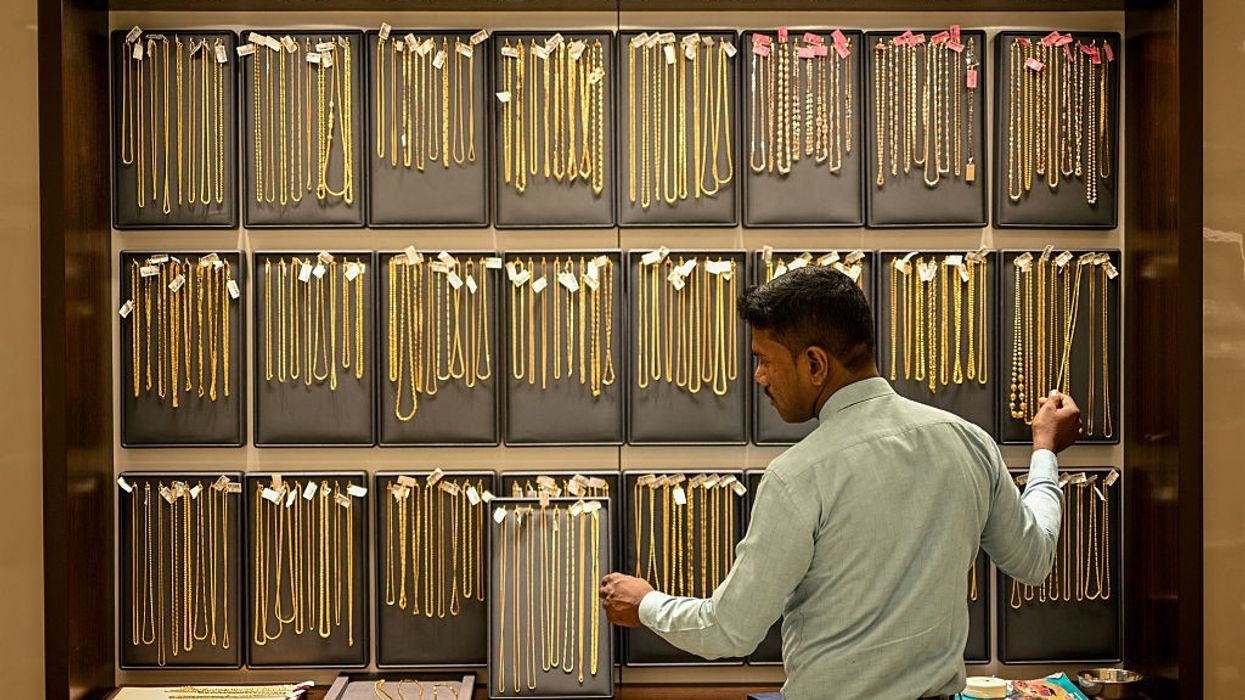INDIA faces severe economic challenges following the United States' decision to raise tariffs on Indian goods to 50 per cent. This increase - set to take effect on August 27 - is a response to India's continued purchase of Russian oil amid the ongoing conflict in Ukraine.
Many Indian exporters warn of massive job losses and dire business impacts across several labour-intensive sectors that depend heavily on the US market.
US president Donald Trump announced the doubling of tariffs from 25 to 50 per cent as part of a strategy to cut off revenue to Russia’s military efforts.
Trump said in an executive order that India was "currently directly or indirectly importing oil from the Russian Federation," justifying the new tariff penalty.
India, one of the largest oil importers globally, now faces a tight deadline to find alternatives to replace roughly one-third of its current oil supplies before the tariffs kick in.
Meanwhile, high-level negotiations between India and the US continue amid the tariff backdrop. US treasury secretary Scott Bessent said India had been "a bit recalcitrant" in trade talks but expressed hope for concluding significant deals with India and other countries by the end of October.
Despite ongoing dialogues, the ministry of external affairs in New Delhi called the US tariffs "unjustified and unreasonable," vowing to take necessary steps to protect India’s national and economic interests.
Economist Garima Kapoor from Elara Securities highlighted the gravity of the situation, saying, "At 50 per cent tariff, no product from India can stand any competitive edge."
India’s exports to the US totaled about $87 billion in 2024, making the US India’s largest export market, accounting for nearly 18 per cent of total exports and roughly 2.2 per cent of India’s GDP.
The new tariffs threaten to hit low-margin, labour-heavy industries such as textiles, gems and jewellery, and seafood with particular force. According to the Global Trade Research Initiative, sales in sectors like garments could shrink by 60 per cent in 2025 due to these tariffs.
Vijay Kumar Agarwal, chairman of the Mumbai-based Creative Group, which has nearly 80 per cent exposure to the US market, said exporters are rushing to meet orders before the August 27 deadline.
However, Agarwal lamented that this was just a temporary response, warning, "If it doesn’t get resolved, there will be chaos." He also voiced concerns for the livelihoods of his 15,000 to 16,000 employees, calling the situation "very gloomy" and predicting immense business losses.
The gems and jewellery sector, which exported more than $10 billion last year and employs hundreds of thousands, is particularly vulnerable.
Ajesh Mehta from D. Navinchandra Exports said, "Nothing is happening now, everything is at a standstill, new orders have been put on hold." He estimated that 150,000 to 200,000 workers could be affected.
Seafood exporters are also feeling the pinch; some US buyers have told suppliers to hold shipments. Alex Ninan, a partner at Baby Marine Group, said, "We are looking to diversify our markets. The United States is totally out right now. We will have to push our products to alternative markets, such as China, Japan... Russia is another market we are really looking into." Still, Ninan cautioned that creating new markets suddenly is difficult: "You can't create a market all of a sudden."
In related development, some Indian exporters, including leading apparel manufacturers such as Pearl Global Industries and Gokaldas Exports, have reported US customers requesting production shift to countries with lower tariffs like Vietnam, Bangladesh, Ethiopia, and Kenya.
Moody’s recently warned that the significant tariff gap between India and competing countries could reverse progress made in trade and investment attraction. The tariffs have raised fears about a slowdown in India's export growth and a possible drag on GDP growth, which was forecast around 6-6.5 per cent but may now face downward revisions.
(Agencies)





